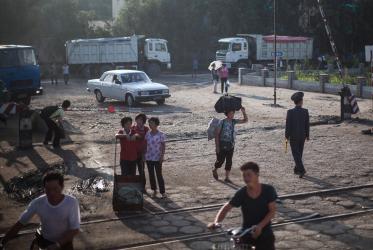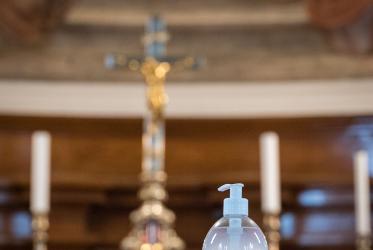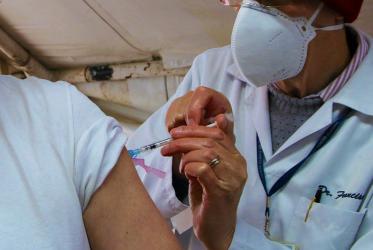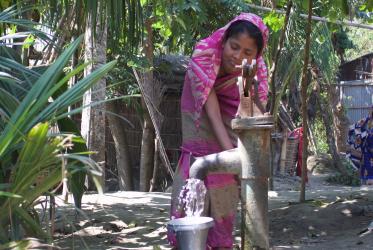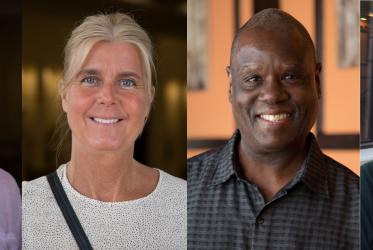Displaying 1 - 20 of 32
WCC calls for prayer for flood-stricken Kerala, India
18 August 2018
#WCC70: A story of how we meet together
02 February 2018
Peacemaking “a great and compelling life task”
09 December 2017
A voice for peace from Down Under
10 July 2017
Peace consultations of hope
07 July 2017
‘Love is stronger than hate’
02 May 2017
Indigenous spirituality: can it transform injustice into justice?
01 September 2016

